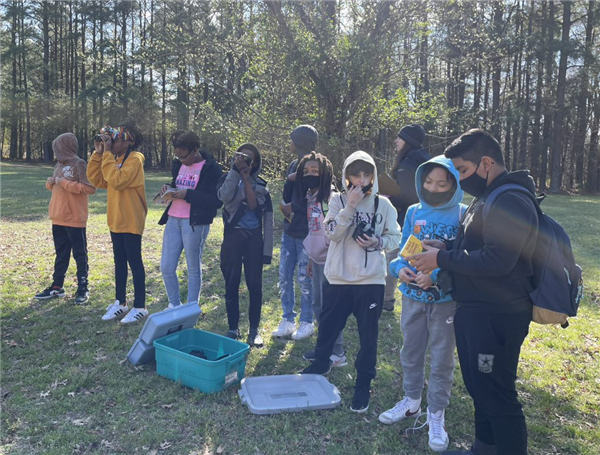Middle School Science
Vision
All students will become scientifically and environmentally literate individuals who are skilled, reflective, and empowered to make informed decisions that benefit themselves, their families, and their local and global communities within an increasingly complex and continually changing world.
Mission
The Maryland State Department of Education (MSDE) Office of Science prioritizes coherence, collaboration, and communication to lead Maryland’s local school systems and other stakeholders in achieving high quality, three-dimensional science teaching, learning, and assessment across all science disciplines and in all grade levels to develop scientifically and environmentally literate graduates.
All WCPS Middle School students take a Science class. Some schools offer science every day for the full year in periods from 45-52 minutes in length. Other schools offer Science as a double block (90 minutes) alternating every day with social studies to allow for extended time for students to engage in hands-on investigations.
The Elementary and Middle School Science Curriculum takes a spiraled approach in which broad topics are examined and reexamined in subsequent grades with increasing complexity, rigor, and sophistication.
A primary resource for Middle School Science instruction is Lab-Aids. Other online resources include Gizmos and Legends of Learning.
Maryland Science Standards
Science instruction in Maryland schools aims for all students to successfully achieve the ambitious vision of Maryland’s Next Generation Science Standards (NGSS). The standards include rigorous performance expectations for each level of school and seamlessly incorporate the practices of science with the content of science. For more information on Maryland’s Science Standards, please contact the Science Coordinator or visit the Next Gen Science website.
All 8th Grade students in Maryland must take the Maryland Integrated Science Assessment (MISA) each March. This assessment satisfies the Federal requirement that all students are assessed in Science at least one time during middle school. MISA includes content from 6th, 7th, and 8th grade. More information on MISA is available here.
Topics by Grade
6th Grade | 7th Grade | 8th Grade |
|---|---|---|
Unit 1: Ecology | Unit 1: Human Anatomy and Physiology | Unit 1: Weather & Climate |
Unit 2: Earth Systems | Unit 2: Diversity and Unity of Life | Unit 2: Mechanics |
Unit 3: Astronomy | Unit 3: Interactions of Matter | Unit 3: Evolution & Adaptation |
Unit 4: Waves, Electricity, & Magnetism | Unit 4: Cell Inquiry | Unit 4: Chemistry |
| Unit 5: Inheritance and Variation of Traits |
|
| Unit 6: Humans in the Environment |

